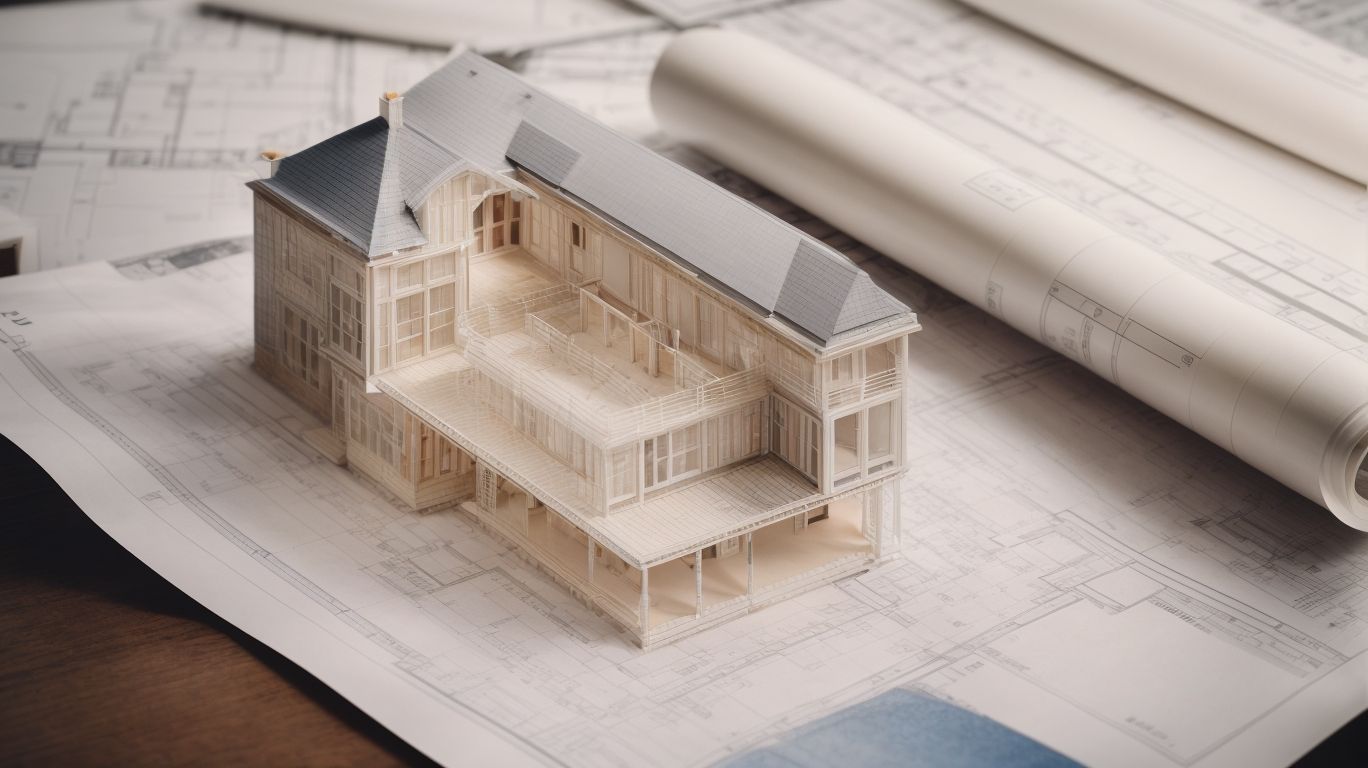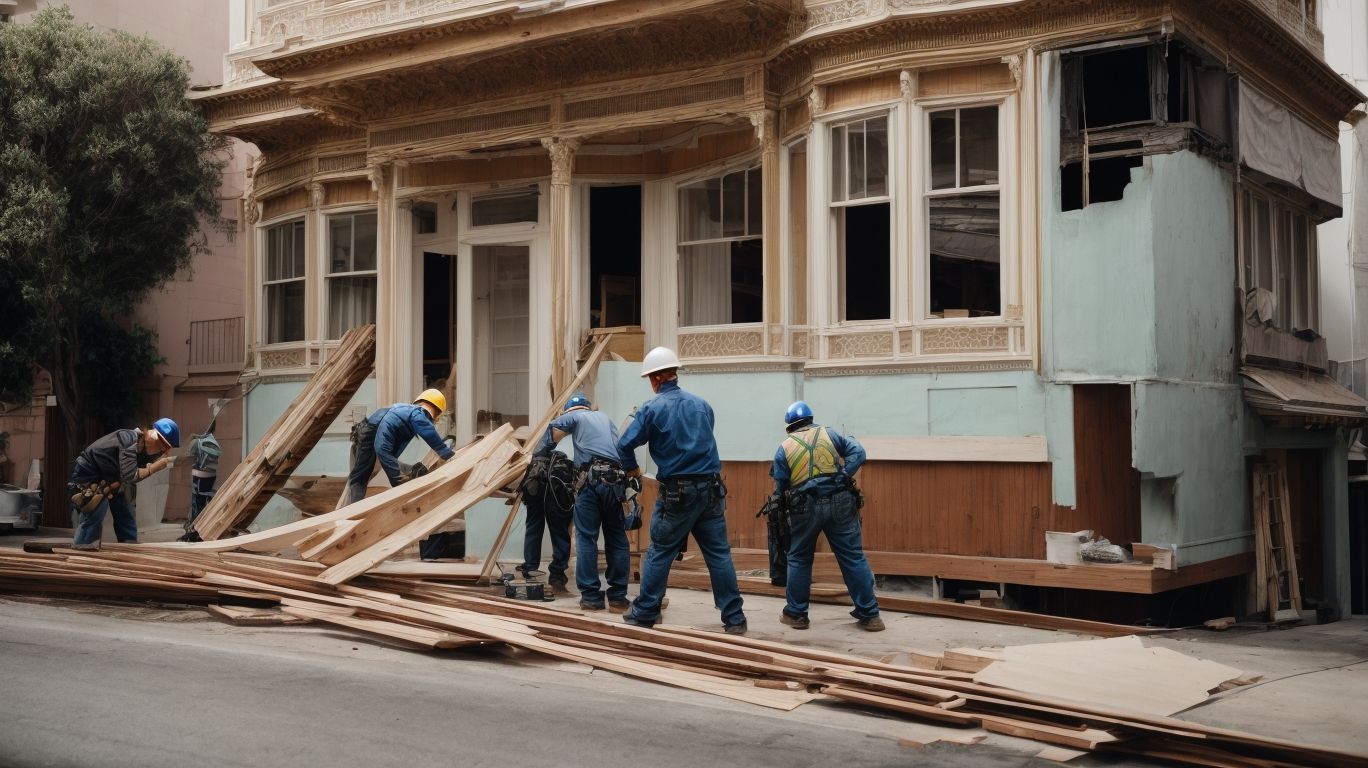
Decoding San Francisco Building Codes for Home Remodeling
Are you planning a home remodeling project in San Francisco? It’s crucial to understand the significance of building codes and permits to ensure a successful and compliant renovation. Adhering to these regulations not only guarantees the safety and structural integrity of your home but also avoids potential legal and financial consequences.
In this comprehensive guide, we will delve into the importance of building codes for home remodeling in San Francisco, the consequences of non-compliance, and the permit process. We’ll also decode the common building codes pertaining to structural, electrical, plumbing, fire and safety, and energy efficiency requirements. We’ll provide valuable insights on how to ensure compliance and the importance of hiring a licensed contractor, obtaining regular inspections, and maintaining thorough records.
Understanding and following building codes and permit requirements is essential for a successful home remodeling project in San Francisco. So, let’s dive into the details to ensure that your renovation meets all the necessary regulations and standards.
Why Are Building Codes Important for Home Remodeling?
In San Francisco, adherence to building codes is crucial for home remodeling and renovation projects as it ensures compliance with local regulations and guidelines, while also maintaining the structural integrity and safety of the property. Contractors and architects play a vital role in ensuring that building practices align with the necessary codes, ultimately contributing to the enhancement of property values in the region.
The building codes in San Francisco not only serve as a guide for construction and renovation but also reflect the city’s commitment to sustainable and resilient infrastructure. By adhering to these codes, property owners can be assured of the quality and safety of their investments. This, in turn, influences property values positively, as prospective buyers or tenants value compliance with regulations and the assurance of a secure living environment.
The involvement of experienced contractors and architects ensures that building practices align not only with legal requirements but also with industry best practices, further bolstering property values.
What Are the Consequences of Not Following Building Codes?
Failure to adhere to building codes in San Francisco can lead to severe consequences, including code violations, legal ramifications, compromised building safety, and violations of established building code laws. Non-compliance with these standards can result in significant setbacks for construction permits, renovations, and adherence to building standards.
It is crucial for property owners and developers to prioritize compliance with building codes to avoid potential legal disputes, financial penalties, and delays in project timelines. In addition, disregarding building codes can jeopardize the safety and structural integrity of the buildings, posing risks to occupants and the surrounding environment.
These violations not only impact the immediate construction process but also have long-term implications for the habitability and value of the property. Therefore, it is essential to prioritize adherence to building codes to ensure safety, legal compliance, and successful project completion.
Understanding the Permit Process for Home Remodeling
In San Francisco, the permit process for home remodeling involves navigating through the intricacies of the local building department, adhering to specific local ordinances, and ensuring compliance with building code enforcement protocols, which may also involve staying abreast of code updates and the overall building permits process.
Once a homeowner decides to undertake a remodeling project, they must first assess the scope of work and determine if it requires a permit. The local building department plays a crucial role in this process, as they review the proposed plans to ensure they comply with zoning regulations, structural requirements, and safety codes. Local ordinances further dictate the specific criteria for remodeling projects, such as setback requirements, historic preservation guidelines, and environmental considerations.
Building code enforcement ensures that the construction meets safety and quality standards, with regular inspections to monitor progress and ensure compliance.
What Types of Permits Are Required for Home Remodeling in San Francisco?
The home remodeling process in San Francisco necessitates various permits, including those related to zoning laws, which are essential for ensuring compliance with the regulations and standards set by building inspectors. Managing these permits is a critical aspect of the construction industry, requiring effective project management to navigate the intricacies of the permitting process.
Zoning laws dictate the allowed land use, building height, setbacks, and other factors that impact the remodeling project. Building inspectors ensure that the construction adheres to safety standards and local building codes.
Obtaining permits for structural, plumbing, electrical, and mechanical work is crucial for the successful completion of the project, while also ensuring safety and quality. Efficient project management is essential to coordinate with authorities, handle paperwork, and address any compliance issues, streamlining the entire remodeling process.
How to Obtain Permits for Home Remodeling in San Francisco?
Obtaining permits for home remodeling in San Francisco involves fulfilling legal requirements, preparing comprehensive construction documentation, and ensuring adherence to building code interpretations, all of which are integral to the construction industry’s compliance with regulatory standards.
This process requires meticulous attention to detail and familiarity with the specific guidelines set by the San Francisco Department of Building Inspection. Understanding the local building codes and zoning regulations is crucial to ensuring that the proposed remodeling project aligns with the city’s requirements.
Obtaining permits often involves submitting detailed plans, securing approvals, and conducting inspections to guarantee that the construction adheres to safety and structural integrity standards. Ultimately, these steps contribute to the overall quality and legality of the remodeling work, thereby illustrating the vital role of permit acquisition in the construction industry.
Decoding Common Building Codes for Home Remodeling in San Francisco
Understanding the common building codes for home remodeling in San Francisco encompasses compliance with:
- Structural requirements
- Electrical codes
- Plumbing codes
- Safety standards
- ADA requirements
All of which are integral to achieving building renovations that align with established building standards and the associated construction permits.
These codes play a crucial role in ensuring the safety and integrity of residential structures. Structural requirements dictate the permissible load-bearing capacity, seismic resilience, and foundation standards. Concurrently, electrical codes govern the installation of wiring, circuits, and electrical fixtures, while plumbing codes address water supply, drainage, and ventilation systems.
Compliance with safety standards is essential for fire protection, ventilation, and accessibility. Adherence to ADA requirements ensures accessibility for individuals with disabilities, encompassing factors like door widths, ramps, and grab bars.
Structural Codes
Structural codes in San Francisco play a fundamental role in establishing the requirements for building safety, standards, and regulations, governing various aspects of building construction and influencing the issuance of construction permits.
These codes form the basis for ensuring that buildings are constructed and maintained to withstand seismic activities, ensuring the safety of occupants. They outline specific criteria for materials, design, and construction methods, contributing to the resilience of structures in the event of earthquakes. The codes address fire safety, accessibility, and energy efficiency, promoting sustainable and habitable environments. Stricter adherence to these codes also results in improved disaster preparedness and reduced risk of property damage.
Electrical Codes
Electrical codes in San Francisco are designed to uphold building safety standards and regulations, ensuring that electrical systems in building construction and renovations meet the necessary requirements for securing construction permits.
They play a crucial role in ensuring that electrical installations are safe, reliable, and in compliance with established standards. These codes are put in place to prevent electrical hazards, reduce the risk of fires, and protect the well-being of occupants. By adhering to these codes, builders and electricians contribute to creating secure and sustainable structures that prioritize the safety and welfare of residents and workers.
Adherence to electrical codes influences the approval of construction permits, ensuring that all electrical work meets the necessary standards for a safe and secure environment.
Plumbing Codes
Plumbing codes in San Francisco establish essential requirements for building safety, standards, and regulations, shaping the landscape of building construction, renovations, and the issuance of construction permits.
These codes not only ensure the proper installation of plumbing systems but also play a crucial role in safeguarding the health and well-being of residents. By adhering to these codes, builders and contractors contribute to maintaining the integrity of the city’s infrastructure and reducing the risk of potential hazards.
The enforcement of plumbing codes enhances the overall quality of construction, promoting sustainable and resilient buildings that can withstand natural or human-made disasters. These standards uphold important guidelines that support environmentally conscious practices and the efficient use of resources, aligning with San Francisco’s commitment to sustainable urban development.
Fire and Safety Codes
Fire and safety codes in San Francisco are designed to establish stringent safety standards, regulations, and fire safety requirements, significantly impacting building construction, renovations, building standards, and the process of obtaining construction permits.
These codes play a crucial role in ensuring the protection of life and property from the devastating effects of fire incidents. They outline specific guidelines for building materials, safety systems, and emergency exits, contributing to the overall safety of buildings. Adherence to these codes is essential for obtaining construction permits, as they form the basis for evaluating the proposed plans and construction activities.
By integrating these codes into building projects, the city aims to enhance public safety and minimize the risk of fire-related disasters.
Energy Efficiency Codes
Energy efficiency codes in San Francisco are pivotal for setting high building standards, influencing the use of building materials, and impacting construction permits and building renovations in line with the city’s commitment to sustainable practices and environmental impact.
They play a vital role in ensuring that new construction and building renovations adhere to strict energy standards, thereby reducing the environmental footprint of the city. By promoting the use of energy-efficient materials and technologies, these codes have a profound effect on the overall sustainability of structures, aligning with San Francisco’s ambitious environmental goals.
They also facilitate the issuance of construction permits for projects that comply with these stringent energy efficiency criteria, reinforcing the city’s position as a leader in environmentally conscious urban development.
How to Ensure Compliance with Building Codes during Home Remodeling?
Ensuring compliance with building codes during home remodeling in San Francisco necessitates the involvement of licensed contractors, architects, and regular inspections to maintain adherence to the established regulations and standards, emphasizing the crucial role of effective project management.
This collaboration ensures that the remodeling process aligns with the specific requirements of the San Francisco building codes, covering aspects such as seismic safety, fire protection, structural integrity, and energy efficiency. Licensed contractors, with their extensive knowledge of local regulations, oversee the construction while architects provide the necessary design expertise. Regular inspections by code enforcement officials not only verify compliance but also offer valuable guidance to address any potential issues early on. Effective project management becomes the driving force that coordinates these elements to achieve a successful and code-compliant remodeling project.
Hire a Licensed Contractor
In San Francisco, compliance with building codes during home remodeling is enhanced by hiring licensed contractors, prioritizing the expertise and qualifications of professionals who can navigate the involvement of building inspectors and effectively manage the project.
They understand the intricacies of local building regulations, ensuring that the remodeling project adheres to all necessary codes and requirements. Licensed contractors bring valuable experience in coordinating with building inspectors, which streamlines the inspection process and reduces the likelihood of delays or rework. Their capability to interpret and apply building codes correctly minimizes the risk of non-compliance issues, safeguarding the homeowner’s investment and overall project success.
Get Inspections Done Regularly
Regular inspections play a vital role in maintaining compliance with building codes during home remodeling in San Francisco, involving the collaboration with building inspectors and adherence to building standards, all overseen through effective project management.
This collaborative approach ensures that the construction or renovation projects meet the necessary safety and structural requirements as specified by the local building codes. Building inspectors bring their expertise to assess the construction process, offering valuable insights to ensure that the work is aligned with the established regulations.
Effective project management further streamlines the inspection process and facilitates timely corrections, promoting quality and safety in the remodeling projects.
Keep Records of Permits and Inspections
Maintaining records of permits and inspections is essential for compliance with building codes during home remodeling in San Francisco, encompassing comprehensive construction documentation and adherence to building code interpretations.
It ensures that the remodeling work meets the legal and safety requirements, guaranteeing the structural integrity and occupant well-being. Without proper documentation, homeowners risk facing delays, fines, or even being asked to undo completed work. Keeping thorough records also facilitates future property transactions, providing potential buyers with assurance regarding the quality and authorization of the remodeled structure. Therefore, prioritizing and diligently maintaining these records is crucial for smooth, compliant, and legally sound home renovations in San Francisco.




No Comments